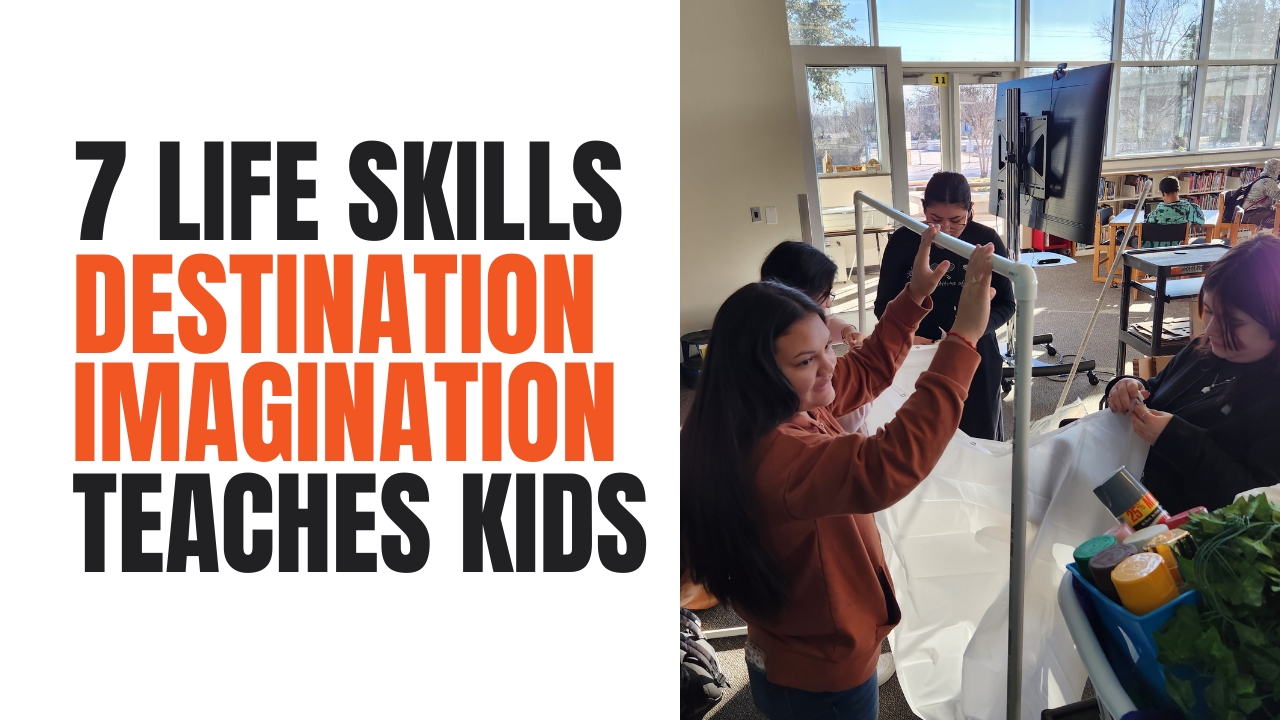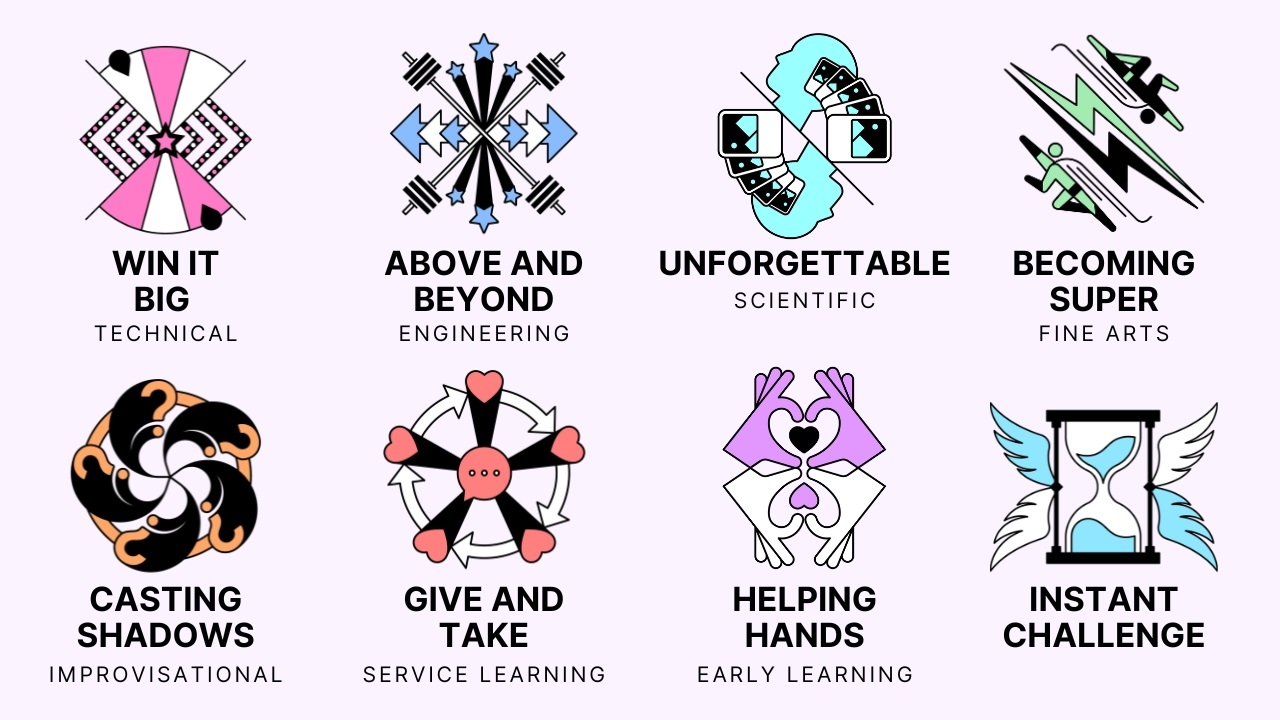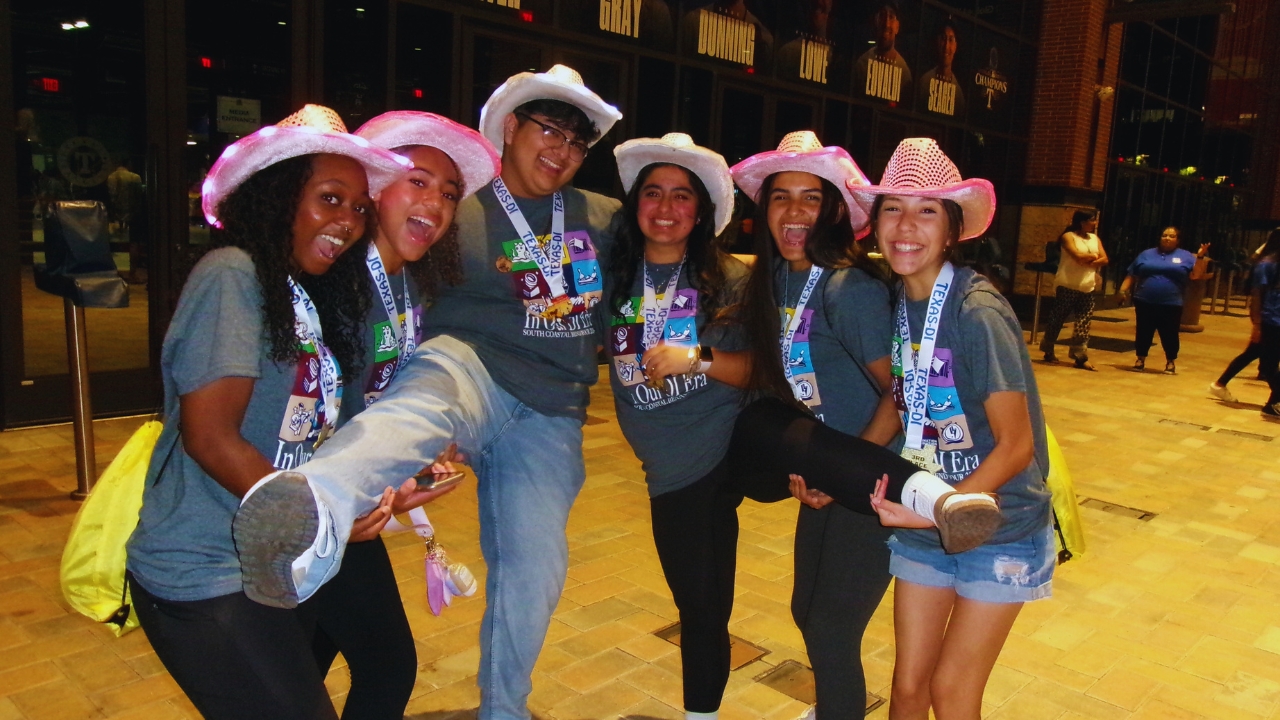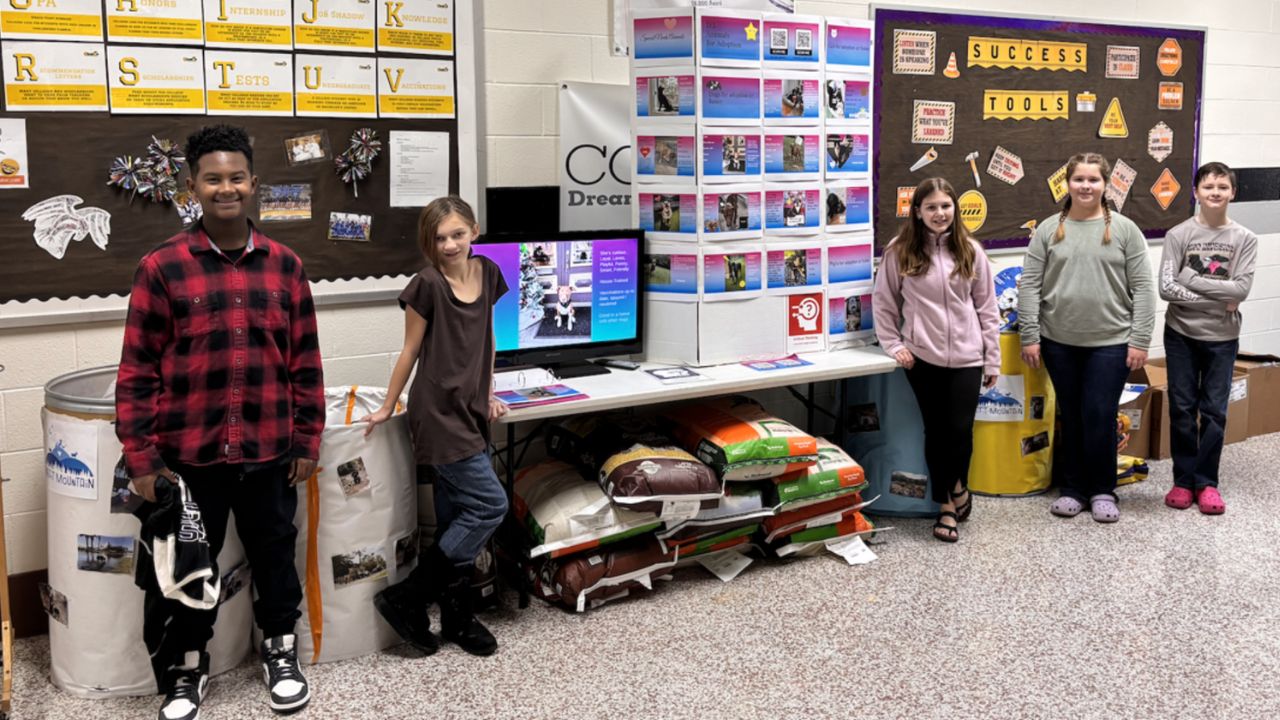We all share the responsibility of preparing our kids for success—not just academically, but in life as a whole. While academics are essential, it’s equally important to equip students with the life skills that will help them thrive in an ever-changing world. These skills foster independence, resilience, and confidence, empowering children to overcome challenges, make informed decisions, and grow into well-rounded individuals.
Through the Destination Imagination Challenge Experience, students have the opportunity to build and refine these skills in an engaging, hands-on way. Here are 7 key life skills that Destination Imagination helps students develop:
- Collaboration: One of the fundamental aspects of the Destination Imagination Challenge Experience is collaboration. Participants must work together as a team to solve a Team Challenge, and each team member brings their unique strengths and perspectives to the table. In solving their Team Challenge, they learn to value and respect diverse opinions, compromise, delegate tasks, and work towards a common goal.
- Creative Problem-Solving: Destination Imagination’s Team Challenges are open-ended and encourage participants to think outside the box and find innovative solutions to complex problems. By working together to solve a Team Challenge, kids learn to analyze, evaluate, and implement creative ideas. They develop critical thinking skills, adaptability, and the ability to approach challenges with a fresh perspective—a skill set that is highly valuable in various aspects of life.
- Communication & Public Speaking: The DI Challenge Experience isn’t just about solving Challenges–it’s a powerful arena for honing top-notch communication skills. From pitching ideas to teammates to presenting their Team Challenge solutions to Appraisers (judges), students learn to articulate thoughts with clarity and confidence and develop strong presentation skills.
- Time Management: DI Challenges have specific time limits, and solutions must be finalized by the team’s tournament date, requiring participants to manage their time effectively. Kids learn to set priorities, allocate time for different tasks, and work efficiently under pressure.
- Conflict Resolution: Differing opinions are not roadblocks but opportunities for growth. As DI participants work together to solve their Team Challenge, disagreements may arise. These moments become chances for kids to practice patience, empathy, and compromise.
- Resilience & Adaptability: In solving a DI Challenge, students encounter unexpected twists and turns, pushing them to adapt and find solutions in the face of adversity. Kids learn to embrace challenges, bounce back from setbacks, and approach problems with a positive attitude. They develop resilience, flexibility, and the ability to think on their feet.
- Leadership & Decision-Making: The Destination Imagination Challenge Experience provides opportunities for kids to take on leadership roles within their teams. They learn to make decisions collectively, delegate responsibilities, and guide their team toward a common objective. By stepping into leadership positions, participants cultivate essential leadership qualities, such as empathy, communication, problem-solving, and decision-making.
The Destination Imagination Challenge Experience goes beyond traditional learning, providing children with a transformative experience that equips them with crucial life and career skills. Through fostering these invaluable skills, kids are better prepared for the challenges and opportunities that lie ahead.
Ready to learn more? Sign up for one of our free webinars for a more in-depth look at our Challenge Experience and chat with our team members!







